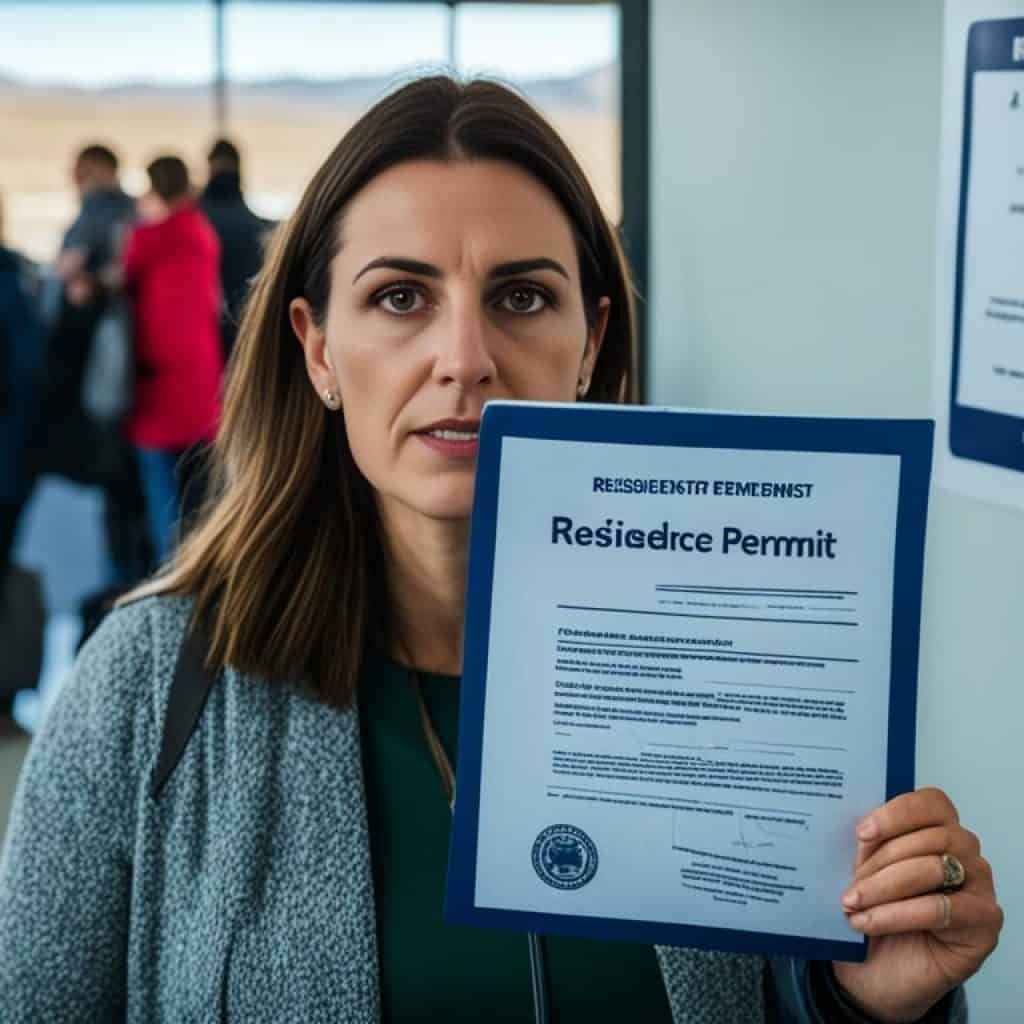An expatriate, or expat, is an individual living and/or working in a country other than their country of citizenship. This can be for temporary or long-term reasons, often related to work. Expats may seek job opportunities and higher incomes abroad. They may choose to renounce their citizenship in their home country to become citizens of another country. Retiring abroad has also become a popular option for expats, with countries in Central and South America, the Mediterranean, and parts of Europe being popular retirement destinations. However, living as an expat can come with challenges, such as adjusting to a new culture and being far away from friends and family.
Key Takeaways:
- An expat is someone who lives and/or works in a country other than their country of citizenship.
- Expats may choose to relocate for work opportunities, higher incomes, or retirement.
- Living as an expat can come with challenges such as cultural adjustment and distance from loved ones.
- Understanding expat taxation, legal considerations, and health and education options is crucial for a successful expat experience.
- Seeking guidance from professionals specializing in expat services can provide valuable support along the journey.
What Is an Expat?
An expat, short for expatriate, is an individual who has chosen to leave their country of origin and reside in a different country. This relocation can be for temporary or permanent purposes, driven by various factors such as job opportunities, career advancement, or personal reasons.
Many expats move abroad in search of better employment options, aiming to secure more lucrative positions outside their home country. These individuals can be professionals or skilled workers in their respective fields, seeking to utilize their expertise in a different cultural and economic context.
Living as an expat often comes with numerous benefits, including higher earning potential, as expats may enjoy increased salaries compared to what they would earn domestically. Additionally, employers commonly provide relocation assistance and housing allowances, further enhancing the financial advantages of being an expat.
However, it’s essential to recognize that the expat journey is not solely about financial gain. Emotional challenges can arise from adjusting to a new culture, navigating unfamiliar surroundings, and being physically distant from friends and family. While the prospect of living abroad is thrilling, it is vital to prepare for and address these emotional aspects to ensure a well-rounded expat experience.
“Being an expat offers a unique opportunity for personal and professional growth. It allows individuals to expand their perspective, learn about different cultures, and develop adaptability skills.”
Retiring Abroad
Retiring abroad has become an increasingly popular choice for individuals looking for a new and exciting chapter in their lives. The allure of a lower cost of living, favorable climate, and access to beautiful beaches and picturesque landscapes has attracted many expatriates to retire overseas.
Popular retirement destinations for expats include countries in Central and South America, the Mediterranean, and parts of Europe. These regions offer a range of benefits for retirees, such as affordable healthcare, a relaxed pace of life, and a strong sense of community.
When considering retiring abroad, individuals may have the option to choose between permanent residency and dual citizenship, depending on the country they wish to retire in. This can provide further benefits and opportunities for a fulfilling expat retirement experience.
It’s important to note that while retirees may be enjoying their retirement in a new country, they still have tax obligations to fulfill in their home country, including the U.S. In some cases, there may also be tax requirements in the country of residence. However, tax treaties between countries can help minimize the impact of double taxation.
The Benefits of Retiring Abroad
- Lower cost of living: Retiring abroad can often mean a more affordable lifestyle, allowing retirees to stretch their retirement savings further.
- Favorable climate: Many retirees are drawn to the idea of spending their golden years in a location with a pleasant climate, offering year-round sunshine and outdoor activities.
- Access to beaches and natural beauty: Retirees who appreciate nature and love spending time by the water can find their ideal retirement destination in a country known for its stunning coastlines and natural landscapes.
- Cultural immersion: Retiring abroad offers the opportunity to immerse oneself in a new culture, learn a new language, and broaden one’s horizons through new experiences and perspectives.
“Retiring abroad can be a truly transformative experience, providing retirees with the chance to explore new horizons, make new friends, and enjoy a fulfilling and enriching retirement.” – Retirement expert
Challenges of Retiring Abroad
- Language barriers: Adjusting to a new language can be a challenge for retirees, particularly if they choose a destination where their native language is not widely spoken.
- Healthcare considerations: While many retirement destinations offer high-quality healthcare options, it’s important for retirees to research and understand the healthcare system in their chosen country to ensure they have access to the care they may need.
- Being away from family and friends: Retiring abroad often means being far away from loved ones. Maintaining strong connections with family and friends back home can be challenging, but technology and regular visits can help bridge the distance.
- Adjusting to a new culture: Adapting to a new culture, customs, and way of life can be both exciting and challenging. Retirees may need to be open-minded, patient, and willing to embrace new experiences and perspectives.
Retiring abroad offers the opportunity for a new adventure, a fresh start, and a chance to create lasting memories in a new and vibrant environment. It’s an option worth considering for those seeking an alternative and fulfilling retirement lifestyle.
Expat Taxation
As an American living overseas, understanding your tax obligations is essential to ensure compliance with U.S. tax laws. Expats are still required to file U.S. tax returns unless they relinquish their American citizenship. However, there are provisions in the U.S. tax code that can help reduce the tax liability for expats and prevent double taxation.
The Foreign Earned Income Exclusion (FEIE) is a valuable tax rule that allows expats to exclude a certain amount of their foreign income from their U.S. tax returns. This means that you do not have to pay U.S. taxes on a portion of your income earned abroad. The FEIE amount for the tax year 2021 is $108,700.
Additionally, the Foreign Tax Credit (FTC) ensures that expats are not double-taxed on their capital gains. If you have paid income tax to your country of residence, you can claim a credit for those taxes paid on your U.S. tax return. The FTC helps to offset your U.S. tax liability by the amount of tax already paid to your host country, avoiding double taxation.
It’s important to note that there may be special tax rules that apply to individuals who renounce their U.S. citizenship for tax purposes. The expatriation tax applies to individuals with a high net worth or significant income tax liability, and it’s crucial to understand the implications before making any decisions regarding citizenship.
To ensure you meet your tax obligations while living abroad, it’s recommended to work with experienced professionals who specialize in expat taxation. They can provide guidance on maximizing tax benefits, help you navigate the complexities of the tax code, and ensure compliance with both U.S. and international tax laws.
Tax Obligations for Expats: Key Takeaways
- Expats must still file U.S. tax returns unless they relinquish their American citizenship.
- The Foreign Earned Income Exclusion (FEIE) allows expats to exclude a certain amount of their foreign income from their U.S. tax returns.
- The Foreign Tax Credit (FTC) ensures that expats are not double-taxed on their capital gains.
- Special tax rules may apply to individuals who renounce their U.S. citizenship for tax purposes.
- Working with experienced professionals who specialize in expat taxation is highly recommended to ensure compliance with tax obligations while optimizing your financial situation.
Advantages and Disadvantages of Being an Expat
Living and working abroad as an expat offers a world of opportunities and experiences. It allows individuals to immerse themselves in new cultures, explore different landscapes, and broaden their horizons. However, this unique lifestyle also comes with its own set of challenges and considerations. Let’s delve into the advantages and disadvantages of being an expat:
Advantages of Being an Expat
- New Experiences: Being an expat opens the door to a wealth of new experiences. From tasting exotic cuisine to exploring breathtaking landmarks, every day brings exciting discoveries.
- Better Climate: Many expats choose to relocate to countries with more favorable climates. Whether it’s a sunny beach or a cozy mountain retreat, living in a place with pleasant weather can greatly enhance one’s quality of life.
- Potentially Lower Cost of Living: Depending on the destination, expats may benefit from a lower cost of living compared to their home country. This can mean more disposable income and the ability to enjoy a comfortable lifestyle.
- Access to Government Perks: Some countries provide expats with additional benefits, such as free healthcare and education. These perks can alleviate financial burdens and ensure a high standard of living for expat families.
- More Favorable Taxation: Expats may be eligible for tax advantages, such as the Foreign Earned Income Exclusion and Foreign Tax Credit, which can help minimize their tax liability and maximize their earnings.
Disadvantages of Being an Expat
- Double Taxation: One of the challenges expats often face is the potential for double taxation. They may be required to pay taxes in both their home country and their country of residence, which can impact their financial situation.
- Being Far Away from Friends and Family: While the expat journey offers exciting new opportunities, it also means being separated from loved ones. Missing important milestones and dealing with homesickness can be emotionally challenging.
- Learning a New Language: Moving to a new country often means encountering a different language. Learning the local language can be a daunting task, but it is crucial for effective communication and integration into the local community.
- Adjusting to a Different Culture: Every culture has its own set of norms, customs, and traditions. Adapting to a new culture can require patience, open-mindedness, and a willingness to embrace unfamiliar ways of life.
- Financial Considerations: Managing finances as an expat can be complex, especially when it comes to international banking, investments, and retirement planning. Understanding the financial implications and seeking professional guidance is essential.
While the expat life brings numerous advantages, it is important to carefully weigh the benefits against the challenges before embarking on this journey. Being aware of the potential drawbacks and taking proactive steps to overcome them can lead to a rewarding and fulfilling expat experience.
What Does It Mean to Become an Expat?
Becoming an expat means embarking on a grand adventure, leaving the comforts of your home country behind and immersing yourself in a new culture and way of life. It’s an opportunity to explore different horizons, build valuable connections, and gain a unique perspective on the world. Whether it’s for career advancement, personal growth, or simply a desire for change, the decision to become an expat is a significant one that requires careful consideration and planning.
When you become an expat, you open yourself up to a whole new lifestyle. You become part of a vibrant community of like-minded individuals who are also seeking new experiences and opportunities. The expat lifestyle offers a sense of freedom, allowing you to create a life tailored to your dreams and aspirations.
However, it’s important to acknowledge that being an expat also comes with its own set of challenges. Adapting to a new environment, language, and cultural norms can be both exciting and daunting. Being away from familiar surroundings and support networks may require you to step out of your comfort zone and develop resilience and self-reliance.
So, what can you expect from the expat experience? Well, every expat journey is unique, but here are some key aspects that many expats encounter:
- Cultural Immersion: You’ll have the opportunity to immerse yourself in a different culture, gaining a deeper understanding of customs, traditions, and ways of life you may have never encountered before.
- Career Advancement: Many people become expats to take advantage of career opportunities that may not be available in their home country. Working in a new environment can expand your professional network and enhance your skillset.
- Personal Growth: Living as an expat challenges you to step outside your comfort zone, fostering personal growth, and self-discovery. You’ll develop adaptability, resilience, and a global perspective.
- New Connections: The expat community is a tight-knit one, and you’ll have the opportunity to make lifetime friendships with people from all over the world. Expats often form strong bonds based on shared experiences and the common desire for adventure.
- Travel Opportunities: Living abroad offers a gateway to explore new destinations and embark on exciting travel adventures. You’ll have the chance to tick off bucket-list experiences and create memories that will last a lifetime.
- Understanding of Global Issues: By experiencing life in a different culture, you’ll develop a broader understanding of global issues and challenges. This exposure can lead to increased empathy, cultural sensitivity, and a desire to make a positive impact in the world.
“Becoming an expat is not just about changing your address; it’s about embracing a new way of life and opening yourself up to endless possibilities.”
Remember, making the decision to become an expat is a personal one that requires careful consideration of your goals, motivations, and individual circumstances. Take the time to research potential destinations, learn about visa requirements, and seek advice from those who have already embarked on a similar journey. By doing so, you’ll be well-prepared for the exciting expat adventure that lies ahead.
What Is an Expat Community?
When people relocate to a foreign country, they often seek out other foreigners, especially those from their home country. Expatriate communities, also known as expat communities, are enclaves of people with a similar national origin. These communities provide a sense of familiarity and support for expats who may be navigating a new culture and environment.
Within expat communities, individuals can find not only social connections but also valuable resources and assistance. Many expat communities have their own schools that cater to the needs of expat children, ensuring they receive education while maintaining a sense of cultural identity. These communities often offer shopping options that carry familiar products and foods, easing the transition to a new country and ensuring expats can find the items they need.
English-speaking enclaves are often referred to as “Anglo” communities, where expats can communicate in their native language and feel more at ease. Being part of an expat community not only helps expats adjust to their new surroundings but also provides a network of support. Expats can share experiences, offer advice, and provide vital assistance to one another.
Being part of an expat community can make a significant difference in an expat’s life. It offers connection, understanding, and practical help when needed. Expats can bond over shared experiences, celebrate customs and traditions from their home country, and create lifelong friendships. It’s like having a home away from home.”
Benefits of Expat Communities
Being part of an expat community brings several advantages:
- Support: Expat communities provide a support system where individuals can turn to others who understand the challenges they face, offering advice, guidance, and emotional support.
- Integration aid: Expats can receive valuable insights from those who have already navigated the pitfalls and triumphs of living abroad, helping them adapt to the new culture more smoothly.
- Shared resources: Expats can share knowledge about practical matters such as healthcare, education, housing, and local regulations, saving time and effort.
- Social opportunities: Expats often organize social events, cultural activities, and holiday celebrations, providing opportunities for new friendships and a sense of belonging.

Being part of an expat community is not only about finding familiar faces but also about building a support network and fostering a sense of belonging. Expats in these communities can navigate the challenges of living in a foreign country while enjoying the benefits of shared experiences, cultural diversity, and lasting friendships.
Expat Tax Considerations
When it comes to living abroad as an expatriate, tax considerations are an important aspect that requires careful planning and compliance. Understanding your tax obligations and implementing effective tax planning strategies can help you optimize your financial situation while avoiding any legal issues.
American expats, in particular, must be aware that they are still required to file U.S. tax returns unless they give up their American citizenship. This means that even if you are living and earning income outside of the United States, you are still subject to U.S. tax laws.
To ensure tax compliance and minimize your tax liability, it is essential to familiarize yourself with the various provisions and rules that apply to expat taxation. Here are some key considerations:
Foreign Earned Income Exclusion (FEIE)
The FEIE allows you to exclude a certain amount of your foreign earned income from your U.S. tax return. For the tax year 2021, the maximum exclusion amount is $108,700. This means that if your foreign earned income falls within this limit, you may be able to exclude it from your taxable income.
Foreign Tax Credit (FTC)
The FTC is designed to prevent double taxation by allowing you to claim a credit for taxes paid to a foreign country. If you are subject to both U.S. and foreign taxes on the same income, you can use the foreign tax credit to offset your U.S. tax liability.
Other Tax Provisions
In addition to the FEIE and FTC, there are other tax provisions that may be relevant to expats, such as the foreign housing exclusion and the foreign housing deduction. These provisions can help offset the cost of housing expenses incurred while living abroad.
Working with experienced tax advisors who specialize in expat taxation is highly recommended. They can provide valuable guidance and ensure that you comply with all relevant tax laws and regulations while optimizing your financial situation.
âUnderstanding your tax obligations as an expat is crucial to avoid any legal issues and ensure that you are making the most of your financial situation.â
By taking the time to understand and plan for your expat tax considerations, you can navigate the complexities of international taxation while ensuring compliance and optimizing your financial well-being.
| Key Expat Tax Considerations | Description |
|---|---|
| Foreign Earned Income Exclusion (FEIE) | Allows expats to exclude a portion of their foreign earned income from U.S. tax returns. |
| Foreign Tax Credit (FTC) | Enables expats to claim a credit for taxes paid to a foreign country to offset U.S. tax liability. |
| Other Tax Provisions | Includes the foreign housing exclusion and foreign housing deduction to offset housing expenses. |
Expat Financial Matters
When it comes to managing finances as an expat, there are various factors to consider beyond taxes. Expats often have unique financial concerns related to banking, investments, currency exchange, and retirement planning. It’s crucial to understand the financial implications and explore the available options to make informed decisions while living and working abroad.
Working with financial advisors who specialize in expat financial matters can provide the guidance and support you need to effectively manage your finances. These professionals have a deep understanding of the challenges and opportunities that expats face, and they can help you navigate through the complexities of international finance.
International Banking and Investment Options
One important aspect of expat finances is choosing the right banking and investment solutions. Depending on your country of residence, you may have access to international banks or local institutions that cater to expatriates. When selecting a banking provider, consider factors such as account features, convenience, fees, and support for international transactions.
Additionally, expats often need to make decisions regarding investment opportunities. A financial advisor can help you explore investment options both in your home country and internationally, considering factors such as risk tolerance, return potential, and diversification. They can guide you in creating a tailored investment plan that aligns with your financial goals and helps you maximize your wealth.
Tax-Efficient Strategies
Taxes can have a significant impact on your finances as an expat, and understanding tax-efficient strategies is essential. A financial advisor specializing in expat financial planning can help you minimize your tax liability through legitimate means and take advantage of any applicable tax treaties or agreements between your home country and your country of residence.
By structuring your income and investments in a tax-efficient manner, you can optimize your financial situation and reduce the risk of double taxation. This may involve leveraging tax deductions, credits, and allowances, such as the Foreign Earned Income Exclusion or the Foreign Tax Credit.
Long-Term Retirement Planning
Planning for retirement is another crucial aspect of expat finances. As an expat, you may have unique considerations when it comes to retirement planning, such as the need to navigate different tax systems, investment options, and healthcare coverage.
A financial advisor specializing in expat financial planning can help you develop a comprehensive retirement strategy that takes into account your current financial situation, retirement goals, and the specific challenges and opportunities of living abroad. They can guide you in creating a retirement savings plan, exploring retirement investment options, and ensuring that you have the necessary provisions in place to enjoy a comfortable retirement wherever you choose to settle.
By leveraging the expertise of financial professionals who understand the intricacies of expat finances, you can gain peace of mind and confidence in your financial future. These experts can help you navigate the complexities of international finance, tailor strategies to your unique needs, and provide ongoing support as your financial circumstances evolve.
“Managing finances as an expat can be challenging, but with the right guidance, you can make informed decisions and optimize your financial situation for a prosperous future.”
Table: Key Considerations for Expat Financial Planning
| Financial Consideration | Key Factors |
|---|---|
| International Banking | Account features, convenience, fees, international transactions |
| Investment Options | Risk tolerance, return potential, diversification |
| Tax-Efficient Strategies | Tax treaties, deductions, credits, Foreign Earned Income Exclusion |
| Retirement Planning | Tax systems, investment options, healthcare coverage |
Effectively managing your finances as an expat requires careful consideration and planning. By partnering with experienced financial advisors who specialize in expat financial matters, you can navigate the intricacies of international finance, optimize your financial situation, and work towards a prosperous future.
Legal Considerations for Expats
When living abroad as an expat, it’s important to navigate the legal landscape and be aware of your rights and responsibilities in the host country. Understanding expat legal considerations can help you protect your interests and ensure a smooth transition to your new life.
Immigration Laws
One of the first legal considerations for expats is understanding the immigration laws of the host country. Each country has its own rules and requirements for obtaining visas, work permits, and residency permits. It’s essential to familiarize yourself with the specific immigration processes and ensure that you have the necessary documentation to legally reside and work in the country.
Employment Rights
As an expat, it’s crucial to be aware of your employment rights in the host country. Familiarize yourself with local labor laws, employment contracts, and any specific regulations that may apply to foreign workers. Understanding your rights regarding working hours, wages, and benefits will help you navigate employment agreements and ensure fair treatment.
Property Rights
Whether you’re renting or buying property as an expat, it’s important to understand your rights and obligations. Research the local property laws, regulations, and procedures to ensure that you make informed decisions regarding your housing situation. Knowing your rights as a tenant or homeowner will help protect your interests and avoid any legal complications in the future.
Legal Advice for Expats
Given the complexity of expat legal considerations, seeking professional legal advice is highly recommended. Specialized experts in expat legal matters can provide you with valuable guidance tailored to your specific circumstances. They can help you understand the local laws, navigate legal processes, and ensure that you comply with your legal obligations while protecting your rights.
Seeking legal advice from professionals who specialize in expat legal matters can help ensure that expatriates navigate the legal landscape successfully and protect their rights.
Remember, the laws and regulations for expats can vary greatly from one country to another, so it’s essential to stay informed and seek the appropriate legal advice for your specific situation.

Cultural and Social Integration as an Expat
As an expat, cultural and social integration plays a vital role in creating a fulfilling and enriching experience in your new country. The process of integrating into a different culture, adapting to a foreign language, and understanding social norms can be both challenging and rewarding.
To enhance your expat journey and foster a sense of belonging, it’s essential to build connections and relationships with both locals and fellow expats. Joining social clubs and networking groups can provide opportunities to meet like-minded individuals who are navigating a similar expat lifestyle. Attending cultural events and participating in community activities can also help you immerse yourself in the local culture and gain a deeper understanding of your new surroundings.
Being open-minded, respectful, and willing to learn about the customs, traditions, and values of your host country is key to fostering positive cultural integration. Embracing diversity and showing genuine interest in the local culture can help break down barriers and establish meaningful relationships.
“Cultural integration allows you to embrace new perspectives, broaden your horizons, and experience personal growth.”
It’s important to remember that cultural integration is a two-way process. While adapting to the host culture, don’t forget to share your own culture and experiences with others. This exchange of ideas and traditions can create a deeper understanding and appreciation between different cultures.
Furthermore, developing a solid support network of both locals and fellow expats can provide a sense of community and support during your expat journey. Expatriate social clubs, online forums, and expat support groups are excellent resources for connecting with others facing similar challenges and sharing valuable advice.
Experience the vibrant tapestry of your host country’s culture, connect with people from all walks of life, and embrace the newfound sense of community that comes with cultural and social integration.
Exploring Local Culture: A Guide
- Attend cultural festivals and events.
- Visit museums and historical landmarks.
- Try local cuisine and traditional dishes.
- Participate in local customs and traditions.
- Engage in community activities and volunteer opportunities.
| Benefits of Cultural Integration | Challenges of Cultural Integration |
|---|---|
|
|
Expat Healthcare and Insurance
When living as an expat, it’s essential to consider healthcare and insurance options to ensure access to quality medical services. The healthcare landscape may vary in different countries, so it’s crucial for expats to research and understand the healthcare system in their host country.
One important aspect is securing appropriate international health insurance coverage. This helps provide financial protection and peace of mind, ensuring expats have access to necessary medical care when needed. With international health insurance, expats can rely on comprehensive coverage that includes doctor visits, hospitalization, medications, and emergency medical services.
Understanding International Health Insurance
International health insurance offers expats the flexibility to seek medical treatment both in their host country and in their home country. This provides reassurance for those who may need specialized medical care or prefer to receive treatment in their home country.
International health insurance helps expats feel secure and supported, knowing that they have access to quality medical services regardless of their location.
Additionally, international health insurance often includes benefits such as emergency medical evacuation, which can be crucial in situations where specialized treatment is not available locally.
Key Considerations for Expat Healthcare
When navigating the healthcare landscape as an expat, it’s important to consider the following:
- Research the healthcare system in the host country to understand the available medical services and their quality.
- Ensure international health insurance coverage encompasses the specific medical services and treatments needed.
- Find English-speaking doctors or medical facilities to facilitate clear communication and understanding during medical visits.
- Consider the waiting times for medical appointments and procedures in the host country.
- Take proactive steps to maintain good health, such as practicing healthy habits and seeking preventive care.
By staying informed and proactive about healthcare options, expats can navigate the system effectively and prioritize their well-being while living abroad.
| Insurance Provider | Coverage Limit | Benefits |
|---|---|---|
| Provider A | $1,000,000 | Emergency care, hospitalization, doctor visits, prescription medications, medical evacuation |
| Provider B | $500,000 | Emergency care, hospitalization, doctor visits, prescription medications |
| Provider C | $2,000,000 | Emergency care, hospitalization, doctor visits, prescription medications, dental coverage, alternative therapies |
Expat Education and Schooling
For expat families with children, education and schooling are important considerations. International schools are often a popular choice for expat children, as they provide education in multiple languages and follow international curricula. These schools offer a supportive environment for expat children, helping them adjust to a new educational system and make friends from various backgrounds. Some international schools also offer specialized programs for expat children to maintain fluency in their native language and culture. Researching and choosing the right educational options for expat children is crucial for their academic and social development.

Expat Mental Health and Well-being
Taking care of mental health and well-being as an expat is crucial for a fulfilling and balanced life abroad. Living in a new country and navigating cultural differences can be challenging and may have an impact on your mental well-being. However, there are several steps you can take to prioritize your mental health and ensure a positive expat experience.
First and foremost, it’s essential to prioritize self-care. This includes practicing self-awareness and recognizing your own needs and boundaries. Make time for activities that bring you joy and help you relax, such as engaging in hobbies, exercising regularly, or simply taking moments of quiet reflection.
Creating a strong support network is also vital for your well-being. Seek out fellow expats or locals who share similar interests or experiences. Joining expat support groups can provide a sense of community and a safe space where you can share your challenges and triumphs. Connecting with others who understand what you’re going through can have a tremendously positive impact on your mental health.
Quotes:
“Prioritizing your mental well-being as an expat is not a luxury but a necessity. Take the time to care for yourself, seek support, and build connections that will nourish your soul as you navigate your new home.” – Sarah Thompson, Expat Life Coach
“Remember to be gentle and patient with yourself. It takes time to adjust to a new environment. Celebrate the small victories along the way and don’t hesitate to ask for help when needed.” – Dr. Anna Chen, Psychologist
In addition to self-care and building a support network, engaging in activities that promote well-being can be beneficial. Explore your new surroundings, try new experiences, and immerse yourself in the local culture. Whether it’s attending cultural events, exploring nature, or joining clubs or social groups, these activities can help you manage stress and foster a sense of belonging.
If you find yourself struggling with your mental well-being as an expat, don’t hesitate to seek professional support. Many cities have expat support services that offer counseling or therapy tailored to the unique challenges faced by expatriates. These professionals can provide guidance and tools to help you navigate the emotional rollercoaster that often accompanies expat life.
Remember, your mental health matters. Prioritize self-care, seek support, and embrace the opportunities for growth and personal development that come with being an expat.
Conclusion
As we conclude this expat guide, it’s clear that becoming an expat offers a world of possibilities. It allows individuals to embark on a journey of personal and professional growth, experiencing new cultures and broadening their horizons. However, it’s important to remember that expat life also comes with its share of challenges and considerations.
Understanding key aspects such as expat taxation, financial matters, legal considerations, cultural integration, and healthcare and education options is crucial for a successful expat experience. Seeking guidance from experienced professionals who specialize in expat services can provide valuable support and ensure that you make informed decisions along the way.
Ultimately, the decision to become an expat should be based on a careful evaluation of the advantages and disadvantages, considering your personal goals and individual circumstances. Embrace the opportunities, but also be prepared for the challenges that lie ahead. With proper planning and the right support, your expat journey can be a fulfilling and enriching chapter of your life.
FAQ
What is an expat?
An expat, or expatriate, is an individual living and/or working in a country other than their country of citizenship.
Why do people become expats?
People become expats for various reasons, including job opportunities, seeking higher incomes, and retiring abroad.
What are the benefits of being an expat?
Some benefits of being an expat include new experiences, potentially better climate, and access to government perks and more favorable taxation.
What are the challenges of expat life?
Some challenges of expat life include adjusting to a new culture, being far away from friends and family, and potential language barriers.
What is an expat community?
An expat community is a group of people from the same national origin living in a foreign country, often providing support and a sense of familiarity.
How do expats navigate taxes?
Expats must comply with tax obligations in their home country and possibly their country of residence, utilizing provisions like the Foreign Earned Income Exclusion and the Foreign Tax Credit to minimize double taxation.
What are the financial considerations for expats?
Expats should consider banking, investments, currency exchange, and retirement planning when managing their finances abroad.
What legal aspects should expats be aware of?
Expats should be aware of immigration laws, employment rights, property rights, and other legal matters in their host country.
How can expats integrate into a new culture?
Expats can join social clubs, attend cultural events, and participate in community activities to immerse themselves in the local culture.
What healthcare and insurance considerations should expats have?
Expats should research and secure appropriate international health insurance coverage and understand the healthcare system in their host country.
What educational options are available for expat children?
International schools are often a popular choice for expat children, as they provide education in multiple languages and follow international curricula.
How can expats take care of their mental health and well-being?
Expats should prioritize self-care, seek support from professionals if needed, and engage in activities that promote well-being.
What should be taken into account before becoming an expat?
Before becoming an expat, it’s important to consider the advantages and disadvantages, personal goals, and individual circumstances.


















Add comment